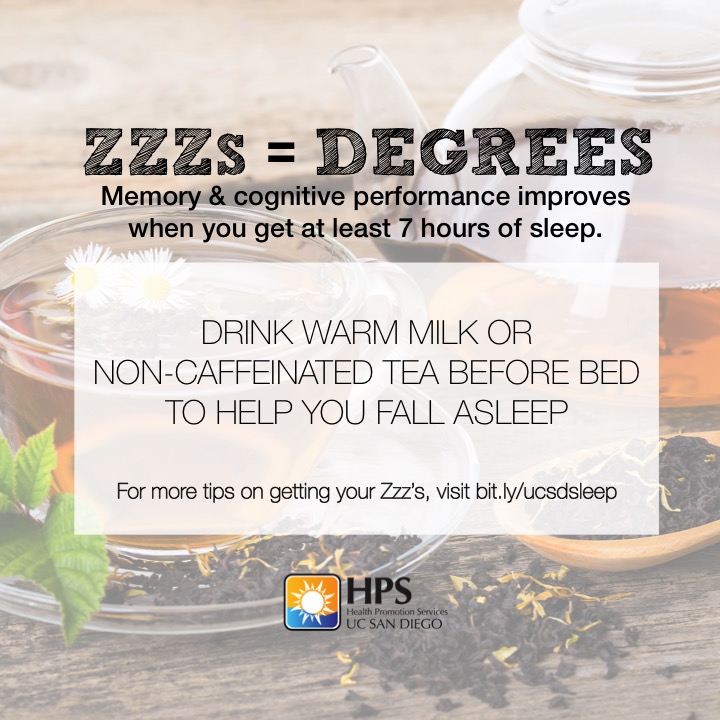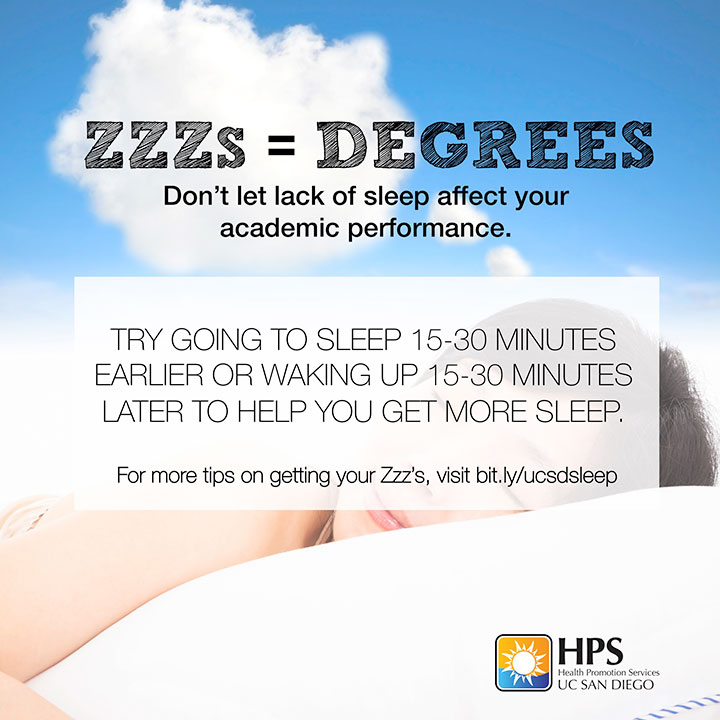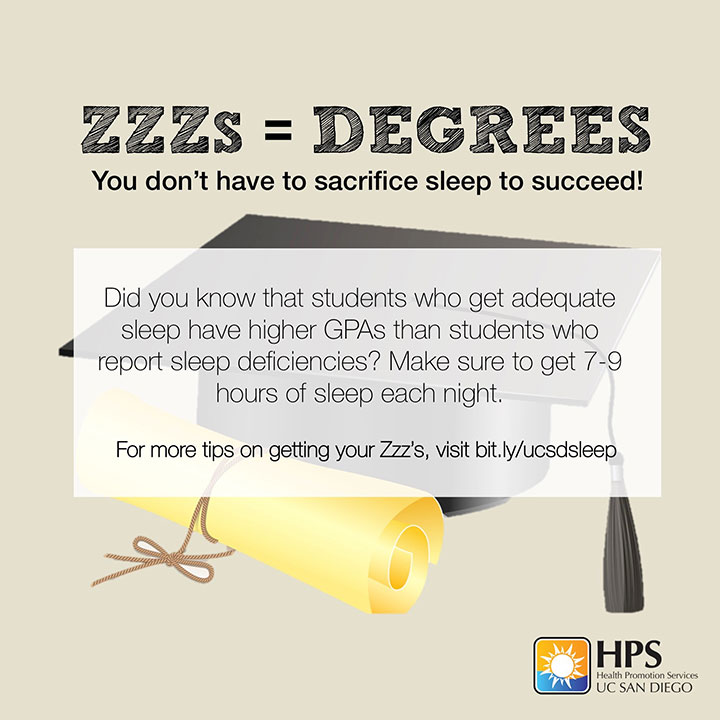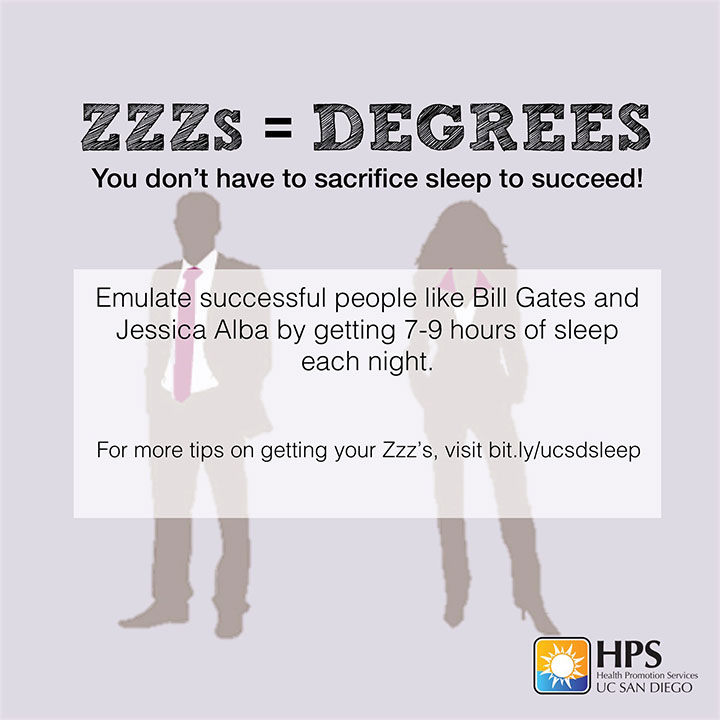Sleep
Have you pulled an all-nighter to study for an exam? Research shows that students who get at least 7 hours of sleep often perform better on exams than those who get less sleep.
Because sleep can affect our mood, learning and memory functions, as well as our immune system, it is important to establish good sleep habits.
Are you having a hard time falling asleep? Establishing a relaxing bedtime routine will help condition your body to relax and fall asleep.
Try the following tips to help you get adequate sleep.
Deep breathing allows more oxygen to enter your body, slows down your heartbeat, and helps your body relax(1). Light stretching or yoga is another calming activity that can get you ready for bed.


Being on your phone, tablet or computer before bedtime actually stimulates your brain an the light from these devices has been shown to be associated with wakefulness, thus making it more difficult to fall asleep(2). Try reading a book or magazine not on a screen.

Green tea contains Theanine which is associated with inducing relaxation(3). Milk contains Tryptophan which arguably promotes sleepiness.


Research shows that caffeine is a disrupter to good sleep. One study in particular found that drinking caffeine even 6 hours before bedtime reduced total sleep time by one hour(4). Download a sleep app on your phone to track your sleep patterns. Student Health 101 recommends the "Sleep Cycle Alarm Clock" app which analyzes your sleep and then wakes you up at an optimal time.


"I don't have time to sleep". This is a statement that we often hear from students especially during midterms and finals. Dr. Shelley Hershner, Director of the Collegiate Sleep Disorder Clinic at the University of Michigan, says, "If you feel you are too busy to sleep 7-8 hours per night, start with small changes." She recommends going to sleep 15 minutes earlier or waking up 15 minutes later(5). Just as we schedule important appointments in our calendar, we should also schedule time to sleep. Use your calendar to help you manage your time wisely to ensure that you get at least 7 hours of sleep.

Taking a nap is another good option to help you get more sleep as long as you do not have any trouble falling asleep at night. Check out the bean bags at The Zone for some quick Zzz's!


Getting adequate sleep not only improves your physical health, but it can help your GPA! (7) Even successful people like Bill Gates and Jessica Alba recognize that you don't have to sacrifice sleep to succeed! (8)
Tips to help you sleep
- Make your room comfortable (dark, quiet)
- Go to sleep and wake up around the same time every day
- Establish a bedtime ritual
- Take a warm bath or shower or do another calming activity that may help you relax and fall asleep easier
- Make time for physical activity during the day
- Avoid caffeine 4-6 hours before bedtime
- Avoid eating heavy meals before bed
- Try not to study or watch tv while in bed
If you have trouble falling asleep or staying asleep, make an appointment with a Student Health provider by calling 858-534-3300.
You can also contact CAPS at: https://caps.ucsd.edu or call 858-534-3755.
Naps
What about naps? Some researchers recommend a 20-minute nap during the day as long as it does not interfere with your ability to fall asleep at night. Check out nap resources at The Zone.
The Benefits of a Good Night's Sleep
Online resources
Have questions? Contact a Health Educator at 858-534-2419.
(1) American Institute of Stress
(2) National Sleep Foundation
(3) Nobre AC, Rao A, O(wen GH. L-theanine, a natural constituent in tea, and its effect on mental state. Asoa Pac J Clin Nutr. 2008 September 17 Suppl 1:167-8
(4) Drake, C, Roehrs T, Shambroom J, Roth T. Caffeine effects on sleep taken 0, 3, or 6 hours before going to bed. J Clin Sleep Med. 2013 Nov 15;9(11):1195-200

